This foundation course offers an overview of the complex relationship between human health and the climate and ecological crises. We outline the ways in which the health system is both vulnerable to and contributing to climate change and ecological degradation, then explores (with case studies as examples) what a sustainable healthcare system could look like. We consider what the wider benefits might be and how can we achieve this.
Please select one date:
- Workshop: Thursday 21 November 2024 [13.00-17.00 GMT]
- Self-study period opens: 24 October
- Self-study period opens: 24 October
- Workshop: Thursday 5 December 2024 [13.00-17.00 GMT]
- Self-study period opens: 7 November
- Workshop: Tuesday 21 January 2025 [9.00-13.00 GMT]
- Self-study period opens: 24 December
- Workshop: Thursday 6 February 2025 [13.00-17.00 GMT]
- Workshop: Friday 21 March 2025 [9.00-13.00 GMT]
- Workshop: Wednesday 23 April 2025 [13.00-17.00 BST]
- Workshop: Wednesday 7 May 2025 [9.00-13.00 BST]
- Workshop: Thursday 19 June 2025 [9.00-13.00 BST]
If you have booked on a course click here for access.
Pricing structure: £100 - £250 + VAT
Course description
The Centre for Sustainable Healthcare is a registered charity working since 2008 to help the health sector reduce its carbon footprint, and it is now one of the world's foremost institutions for sustainable healthcare research and practice. The team draws on knowledge and experience from public health, clinical practice, environmental consultancy, research and public policy to develop the methods and metrics to reduce the footprint of clinical care.
This course is endorsed by 
Learning Objectives
By the end of the course you will be able to:
- Describe the risks the global environmental crisis presents to human health and healthcare systems.
- Describe the contribution of the health sector to the global environmental crisis.
- Understand the basic principles of climate literacy.
- Understand how sustainability can help to address existing challenges in the healthcare system.
- Apply the principles of sustainability to healthcare services.
- Plan a project to improve the sustainability of healthcare in your workplace.
Course Structure
Part I. Self-study online
Opening 4 weeks prior to the workshop this consists of 6 hrs of interactive online materials, presented in bite-sized chunks, covering all course content including background, theory, and case studies, with optional links to further information. Discussion points throughout the module allow you to reflect on your learning and start to get to know fellow participants and their areas of interest and work. At the end of the module, you are invited to sketch out a plan for a sustainability project you might want to undertake, in preparation for the workshop discussions. You can see a table of contents for the self study materials here.
It was informative and easy to understand and follow. Having everything laid out so clearly -- a mixture of text. diagrams, graphs, videos helped bring it to life and keep concentration. It really helped me consolidate my knowledge and feel prepared for the workshop.
I liked that the discussions were grounded in projects and tying into areas we can immediately effect and apply into our work.
Part II. Live workshop online
The 4 hour virtual workshop consolidates your understanding of the course materials. Small group discussions with CSH experts and colleagues from around the world allow further exploration of topics that interest you and tips on how to translate your ideas into action. The timetable includes pre-session technical assistance and networking, followed by a review of the self-study material with Q&A. In breakout groups you will then share your ideas for a sustainability intervention in your setting and make plans to address it, using the range of resources, tools and methods developed by CSH and partners.
I liked the opportunity to network with other trainees. Definitely the examples were the most inspiring and felt practical too.
Part III. Mentoring
After completing the self-study materials and online workshop you are invited to attend our online Sustainable Healthcare Cafés. The 1 hour cafes occur regularly throughout the year and offer ongoing support for you to put your learning in to practice. They are a friendly, informal setting in which to:
Get support for sustainability projects from peers and CSH staff.
Make connections with others bringing sustainability projects into their workplace.
You are welcome to continue attending the cafes as many times as you wish. Upcoming dates are available here and will also be emailed out to you with your certificate of completion after the workshop.
Inspirational and reassuring to hear everyone else’s actions and sense of urgency. On a practical level, I feel more knowledgeable on where to aim my work for greater impact and have been directed towards lots of useful information sources and initiatives
Pricing Structure

Book here
Book a course with peace of mind: We realise that healthcare workers may have to change their plans at short notice. If you are unable to attend a workshop, we can offer you a workshop at a later date for no charge. We can also offer a refund as long as you cancel before the course opens for self-study, which is 4 weeks before the workshop. There will be an admin fee of £30 for refunds.
Courses are facilitated by experts drawn from the faculty below:
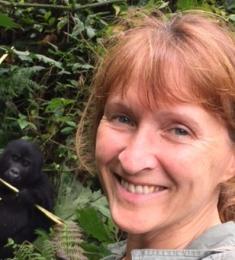 Dr Hayley Pinto, Education and Training Lead
Dr Hayley Pinto, Education and Training Lead
Hayley Pinto is a consultant addiction psychiatrist who leads our Net Zero Leadership training and sustainable healthcare courses. Hayley has a degree in psychology and completed general practice training before pursuing a career in psychiatry. She has 30 years’ clinical and teaching experience in the NHS and publicly funded services and is a member of Health for XR, Psych Declares and a speak for Greenpeace UK.
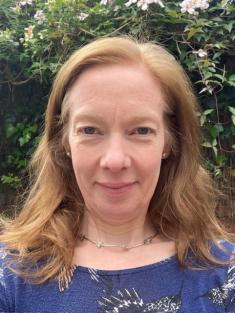 Nuala Hampson, Pharmacy Lead and Senior Educator
Nuala Hampson, Pharmacy Lead and Senior Educator
Nuala Hampson is a pharmacist and educator. She sets strategy for sustainable pharmacy initiatives and facilitates the Net Zero Leadership training and sustainable healthcare courses. Nuala has over 20 years’ experience of clinical pharmacy in primary care and over 15 years’ experience in postgraduate pharmacy education. She is a member of Pharmacy Declares, a group of climate-conscious pharmacy professionals in the UK and joint lead of the Greener Primary Care Pharmacy Association. She co-chairs the national Sustainability in Pharmacy Education group.
 Dr Emily Parker
Dr Emily Parker
Emily is a paediatric doctor based in Newcastle Upon Tyne. She is currently undertaking a clinical fellowship with the Royal College of Paediatrics and Child Health focused on education and advocacy for clean air. Emily was a CSH Paediatric Sustainability Fellow in 2022-23. During her CSH fellowship she co-designed a new hospital greenspace with children, researched medicine carbon footprints, and delivered sustainability education.
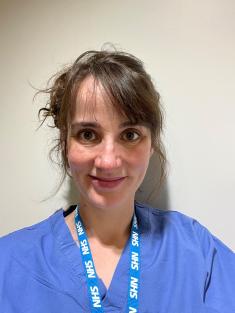 Dr Grace Singleton
Dr Grace Singleton
Grace is a GP registrar based in the North East of England. She graduated from Glasgow University in 2012 and after initially training in general medicine moved to the GP training scheme in 2018. She is a Green Champion for the Faculty of Sustainable Healthcare in the North East and is a co-chair of Greener Practice North East.
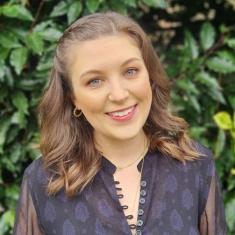 Rachel McLean, SusQI Programme Lead- Competitions and Specialities
Rachel McLean, SusQI Programme Lead- Competitions and Specialities
Rachel leads our Green Team Competition and Green Specialty Challenge work, developing the services and approach to give the biggest impacts to patients, staff, NHS and planet. Rachel has degrees in psychology and speech pathology. She previously worked as a speech and language therapist in London Hospitals, specialising in neonatal therapy and parent coaching.
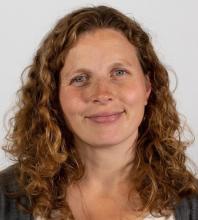 Dr Rosie Spooner, QI Education Fellow 2020-2021
Dr Rosie Spooner, QI Education Fellow 2020-2021
Dr Rosie Spooner is a Paediatric Trainee (St5) in Severn Deanery who has taken up the post of QI Education Fellow at CSH from 2020-2021, working with universities and postgraduate education programmes to support the integration of sustainable healthcare into Quality Improvement teaching. She comes from a background in environmental activism and previously established a hospital allotment society whilst a medical student in London.
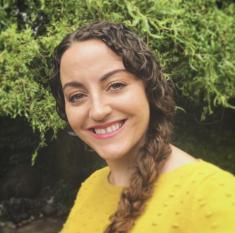 Siobhan Parslow-Williams, QI Education and Evaluation Lead
Siobhan Parslow-Williams, QI Education and Evaluation Lead
Siobhan works within the SusQI programme as a delivery expert in the SusQI Academy and Green Team Competitions. With her background in Nursing research she leads the evaluation of our SusQI work. She was integral to our SusQI Education project and manages our relationships with Academic partners. She is a registered nurse with a background in emergency nursing, primary care, clinical research delivery, management and teaching. Siobhan graduated from the NIHR Advanced Leadership Programme in 2019.
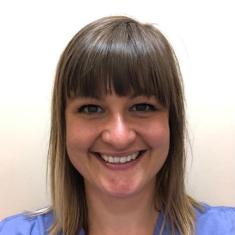 Dr Stacey Harris
Dr Stacey Harris
Stacey is a paediatrician and Welsh Clinical Leadership Fellow in Sustainable Healthcare 2021/2022. She has an enthusiasm for quality improvement (QI) work and a keen interest in Medical education, in 2019 she co-founded a paediatric medical education podcast called DragonBytes. Stacey will be building on her medical education and QI work during this year by working to embed sustainability within quality improvement training and medical education. https://twitter.com/DrStaceyHarris
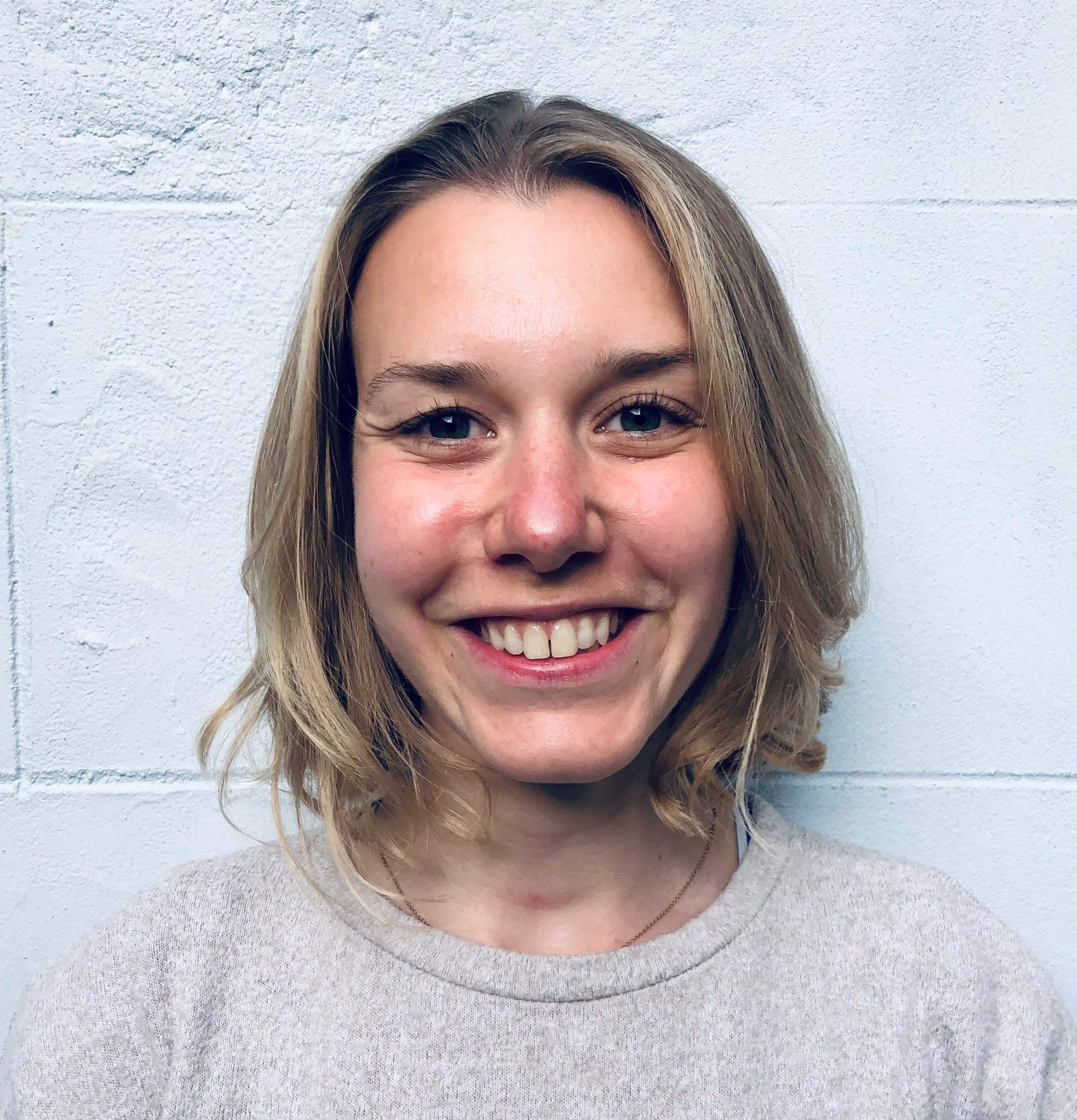 Dr Philippa Clery
Dr Philippa Clery
Pip is a Psychiatry Trainee in North Central London and an Academic Clinical Fellow at University College London. She has been involved in Sustainable Healthcare Education and teaching Sustainability in Quality Improvement (SusQI) since 2019, working with the CSH to integrate SusQI teaching for medical students into the medical curriculum at the University of Bristol and in the Severn Deanery for Foundation Doctors. She is also is involved in climate activism and is the Education Lead on the Royal College of Psychiatrists Planetary Health and Sustainability Committee.
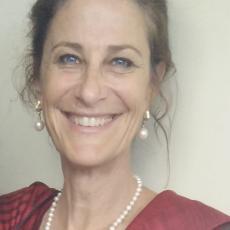 Stefi Barna, Education Programmes Advisor
Stefi Barna, Education Programmes Advisor
Stefi Barna designs learning outcomes, training courses and assessments for sustainable healthcare. She previously taught global public health at Queen Mary University of London, Norwich Medical School, Azim Premji University (India) and the University of Bergen.
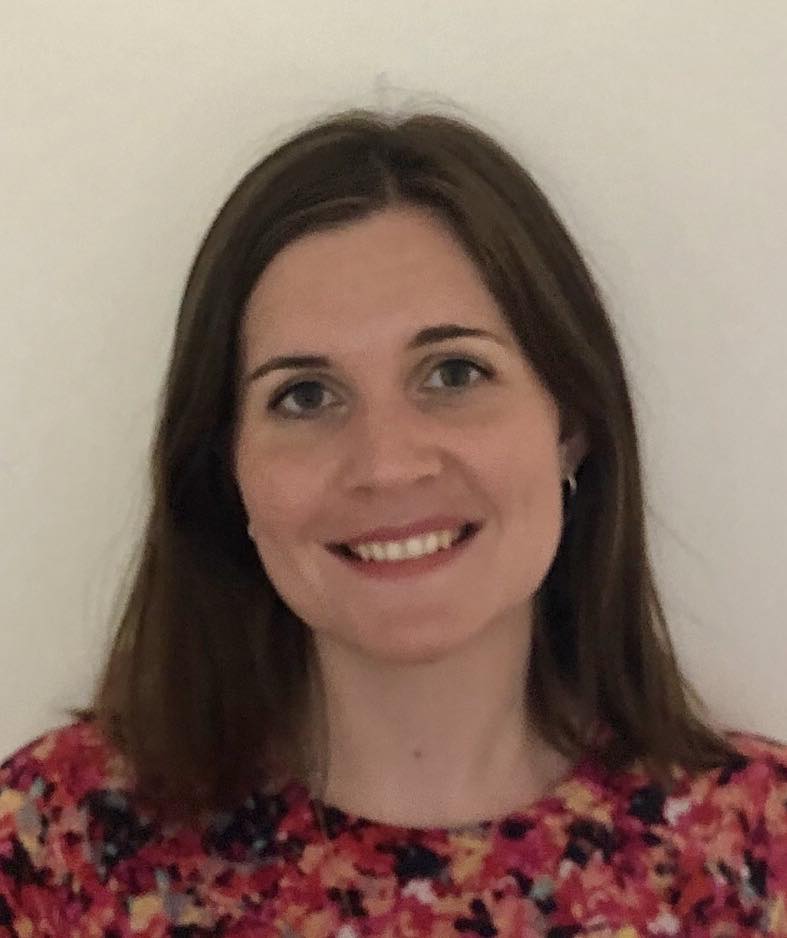 Dr Tamsin Ellis
Dr Tamsin Ellis
Tamsin is a GP in London who helped design and write the sustainable primary care course. She is a director and co-chair of Greener Practice (the UK’s primary care sustainability network). She has previously worked as a primary care net zero clinical lead for North Central London Integrated Care System (NCL ICS) and has worked with the Royal College of General Practitioners (RCGP), Health Education England (HEE) and Greener Practice to deliver primary care planetary health training. She works as an associate at the Centre for Sustainable Healthcare. https://twitter.com/climate_gp
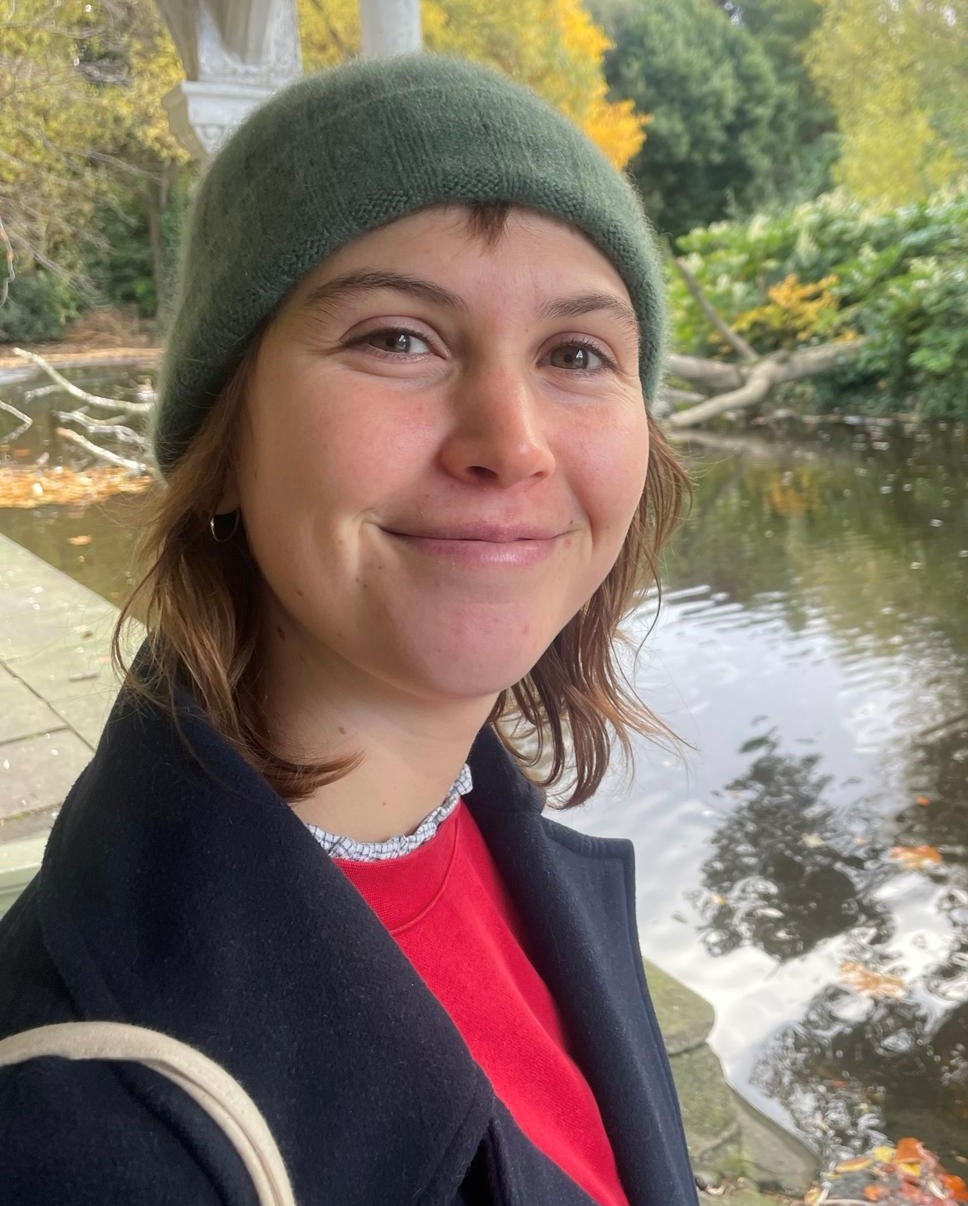 Dr Kirsty Magee
Dr Kirsty Magee
Kirsty is a junior doctor based in Cornwall, currently working in respiratory medicine. She recently undertook a master's in Environment and Human Health, focussing on user perceptions of the health and environmental impacts of e-cigarette use. Her particular interests are sustainably integrating climate positive healthcare into the NHS, and the commercial determinants of health. She has a keen interest in teaching having set up a COVID relief teaching programme in 2020 and enjoys collaborating to improve ideas in clinical transformation.
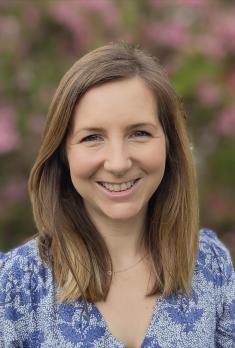 Dr Kathryn Speedy
Dr Kathryn Speedy
Kathryn is a higher trainee in Child and Adolescent Mental Health, based in South Wales, and a Health Education and Improvement Wales Sustainability Fellow. Having always had a love and concern for the environment, in 2020 Kathryn applied for an RCPsych Green Scholarship and joined the RCPsych Planetary Health and Sustainability Committees and EcoCAMHS groups. Kathryn is also a member of Green Health Wales. Kathryn's main areas of interest are raising awareness and education for healthcare professional's about climate, nature and well-being; delivering more sustainable mental health services and incorporating nature-based therapies into clinical care.


